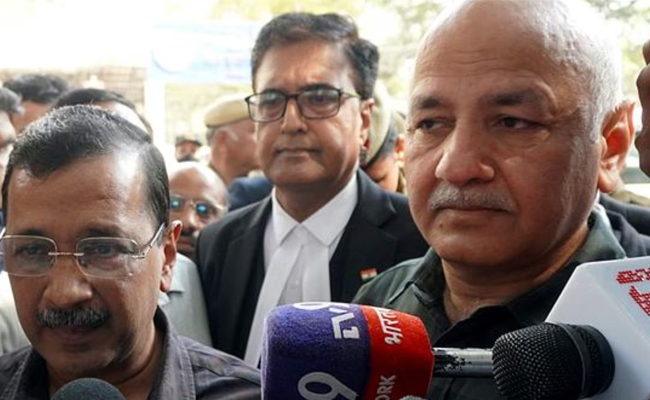Dubai, Jan 25: Swashbuckling Indian batter Suryakumar Yadav was on Wednesday named the ICC Men's T20 Cricketer of the Year for his ridiculously good run in the shortest format of the game.
Surya had a stellar 2022, breaking an array of records and setting a benchmark in the format.
He beat the likes of Sam Curran, Pakistan wicketkeeper-batter Mohammad Rizwan and Zimbabwe's batting all-rounder Sikandar Raza for the top honour.
India's newest fast-bowling star Renuka Singh become the recipient of ICC Emerging Women's Cricketer of the Year Award.
However, India vice-captain and last year's Cricketer of the Year Smriti Mandhana lost out to Australia's Tahlia McGrath in the women's T20 category.
Popularly known as 'SKY', the 32-year-old became just the second batter to make more than 1000 runs in a calendar year in T20Is and ended the year as the highest run-getter, scoring 1164 runs at a strike-rate of 187.43.
Surya hit a stunning 68 sixes during the year, easily the most recorded by anyone in a year in the format's history.
The Indian was the key batter for his team through the year, smashing two hundreds and nine half-centuries.
Surya was at his stupendous best during the ICC Men's T20 World Cup 2022 in Australia, recording three fifties in six innings and averaging nearly 60.
Notably, his strike-rate was yet again right up there at 189.68.
Having already recorded a ton earlier in the year, Suryakumar continued his brilliant year after the multi-nation tournament, making his second hundred in T20Is in the bilateral series in New Zealand.
Surya also became the top-ranked T20 player, achieving a career-high 890 rating points.
Renuka wins
There has been a buzz surrounding Renuka, who burst into life in a busy 12 months for the Indian women's team.
The 26-year-old beat Australia's Darcie Brown, England's Alice Capsey and compatriot Yastika Bhatia to take home the emerging player award.
The right-armer claimed 40 wickets for her country in 2022 in just 29 matches across the two white-ball formats, filling the void left by the great Jhulan Goswami.
In the ODI game, Renuka was especially potent, taking 18 wickets at an average of just 14.88, of which eight came in two appearances against England and seven in India's series with Sri Lanka.
Renuka troubled the Australian line-up in the seven T20I meetings across the year, taking eight wickets, and her performances across the Commonwealth Games and Asia Cup also grabbed attention. She claimed 17 wickets in 11 matches, at an economy of just 5.21.
With an ability to swing the ball and get it to deviate off the surface, Renuka will likely be one of India's most dependable bowlers in the coming years.
Impressing everybody with her magnificent displays of seam and swing bowling, the ICC Emerging Women's Cricketer of the Year had a great 2022 👌#ICCAwards2022
— ICC (@ICC) January 25, 2023
Presenting the ICC Men's T20I Cricketer of the Year 2022 👀#ICCAwards
— ICC (@ICC) January 25, 2023
Let the Truth be known. If you read VB and like VB, please be a VB Supporter and Help us deliver the Truth to one and all.
Singapore (PTI): An Indian-origin Malaysian man was sentenced in Singapore to 12 years' jail and 12 strokes of the cane for raping a domestic worker outside a train station after tricking her into thinking that he was a police officer.
Sharveen Chetty, 48, pleaded guilty on February 4 to one charge of raping the 35-year-old Indonesian woman in the bushes outside Exit F of a subway, Little India Mass Rapid Transit station, at about 8pm on July 11, 2022.
The victim was with her friends at the time, but Chetty lured her away before he sexually assaulted her, according to a report by The Straits Times on Thursday.
Two other charges – a second rape charge and a charge of impersonating a police officer – were taken into consideration during sentencing on Wednesday.
The witnesses who testified on the first day of the trial included a doctor from Women’s and Children’s Hospital who examined the victim a day after the rapes, and forensic scientists from the Health Sciences Authority.
Chetty had initially contested the charges in a High Court trial that began on February 3. But he changed his mind and pleaded guilty on what would have been the second day of the trial, according to the daily report.
In sentencing, Justice Dedar Singh Gill considered it aggravating that Chetty had targeted the victim because she was a foreigner who might be unfamiliar with the local authorities.
The judge rejected the defence's arguments that the rape was not premeditated.
The judge, however, noted that Chetty had pleaded guilty before the victim and key prosecution witnesses testified, thus sparing her and her friends from going through cross-examination.
The prosecution had sought a sentence of between 11 and 13 years’ jail and 12 strokes of the cane, noting Chetty’s extensive efforts to disguise himself, and his predatory act of leading the victim away from the rest of the group.
Chetty admitted that he became sexually attracted to the victim.





